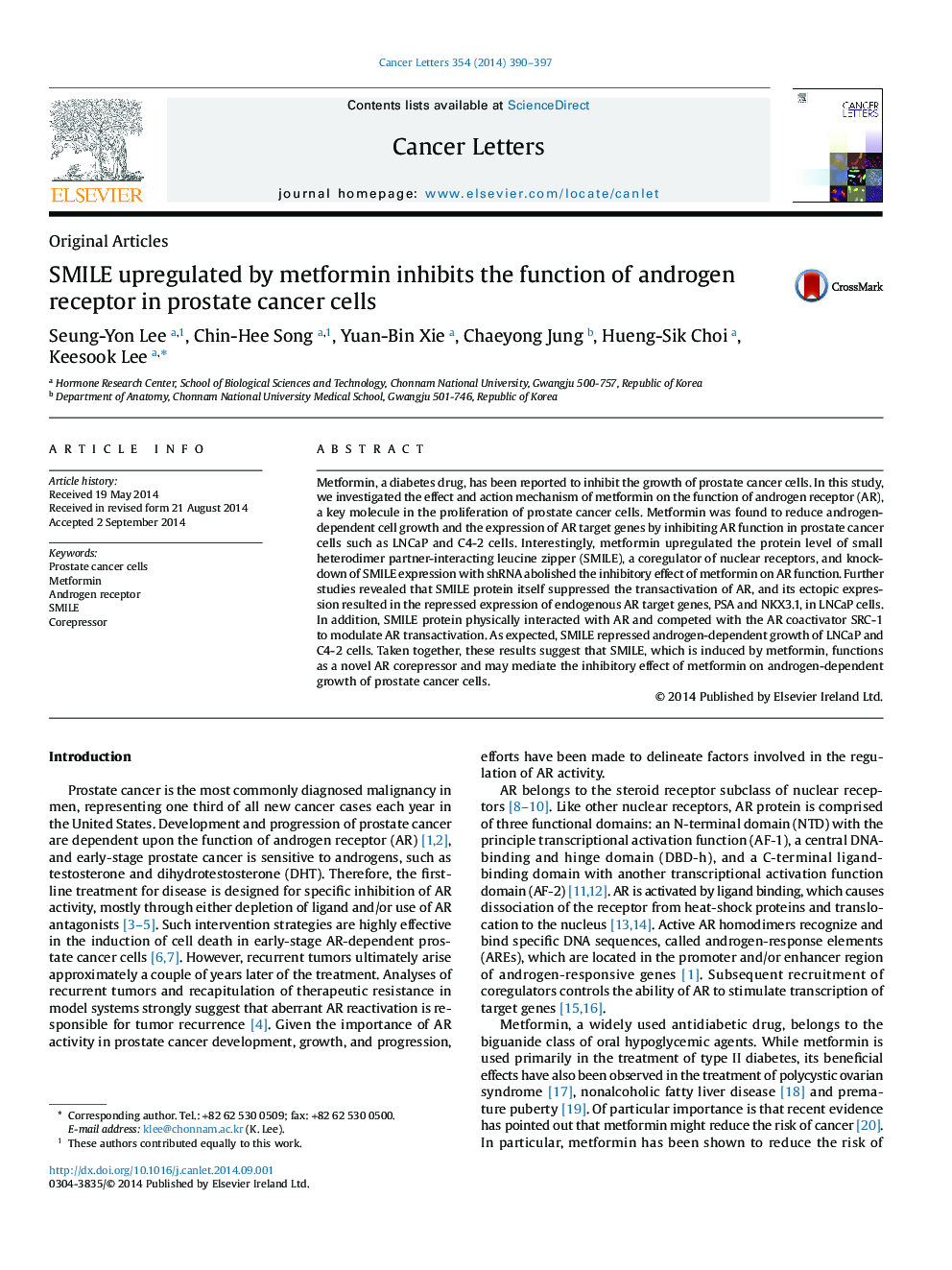| Article ID | Journal | Published Year | Pages | File Type |
|---|---|---|---|---|
| 2112598 | Cancer Letters | 2014 | 8 Pages |
•Metformin reduces the androgen-dependent growth of prostate cancer cells and the expression of endogenous AR target genes.•Metformin induces SMILE expression in prostate cancer cells, of which knockdown with shRNA abolished the inhibitory effect of metformin on AR function.•SMILE suppresses AR transactivation through physical interaction with AR.•SMILE inhibits the expression of AR target genes and the androgen-dependent growth of prostate cancer cells.
Metformin, a diabetes drug, has been reported to inhibit the growth of prostate cancer cells. In this study, we investigated the effect and action mechanism of metformin on the function of androgen receptor (AR), a key molecule in the proliferation of prostate cancer cells. Metformin was found to reduce androgen-dependent cell growth and the expression of AR target genes by inhibiting AR function in prostate cancer cells such as LNCaP and C4-2 cells. Interestingly, metformin upregulated the protein level of small heterodimer partner-interacting leucine zipper (SMILE), a coregulator of nuclear receptors, and knockdown of SMILE expression with shRNA abolished the inhibitory effect of metformin on AR function. Further studies revealed that SMILE protein itself suppressed the transactivation of AR, and its ectopic expression resulted in the repressed expression of endogenous AR target genes, PSA and NKX3.1, in LNCaP cells. In addition, SMILE protein physically interacted with AR and competed with the AR coactivator SRC-1 to modulate AR transactivation. As expected, SMILE repressed androgen-dependent growth of LNCaP and C4-2 cells. Taken together, these results suggest that SMILE, which is induced by metformin, functions as a novel AR corepressor and may mediate the inhibitory effect of metformin on androgen-dependent growth of prostate cancer cells.
